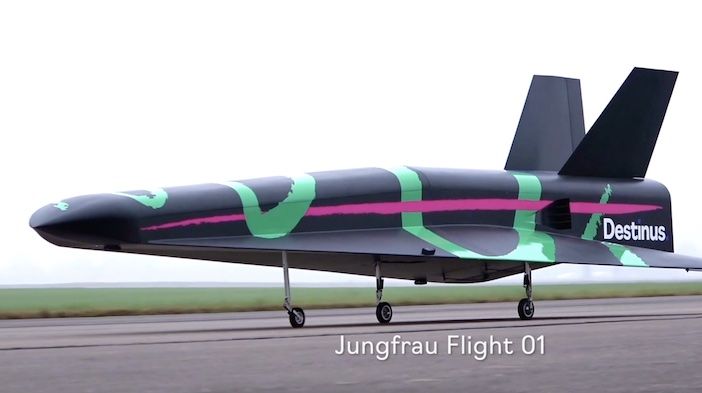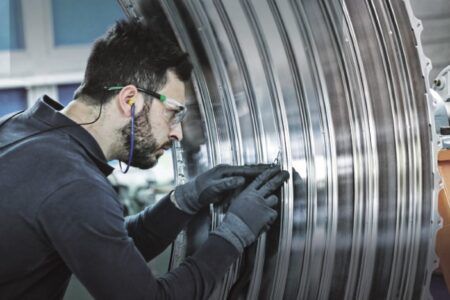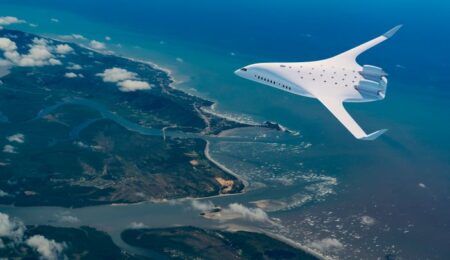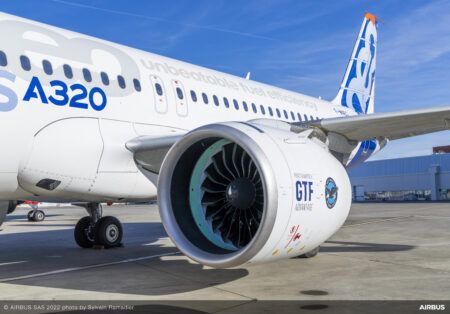Hypersonic aircraft company Destinus has been awarded a multi-million EU grant as part of a research program that will see a facility for testing air-breathing hydrogen engines built near Madrid, Spain.
Destinus is headquartered in Switzerland and was founded in 2021 by Russian physicist and entrepreneur Mikhail Kokorich. The company aims to build hydrogen-powered supersonic and hypersonic passenger aircraft.
Destinus’ first aircraft will be capable of carrying 100 passengers up to 7,500km (4,700 miles) and will be ready by the end of this decade. The second will be transglobal – capable of carrying 400 passengers up to 20,000km (12,500 miles).
The Spanish research program, which was announced earlier this month has been set up to develop a hydrogen-powered aircraft engine, with the first tests scheduled for 2025.
The research program is being led by aero engine manufacturer ITP Aero. Other consortium members alongside Destinus include fuel cell company Ajusa and aerospace systems and structures company Aerotecnic.
As part of the research program a €12 million (US$12.9 million) grant from the Spanish Government will be used to fund the construction of a test facility for air-breathing hydrogen engines that Destinus said it will help “design and iterate”.
A second €15 million (US$16.6 million) grant will be used to investigate aspects of liquid hydrogen-powered propulsion systems for supersonic hydrogen-powered aircraft.
Destinus is expected to receive around a €10 million (US$10.75 million) share of the funding.
Jaime Fernández Castañeda, head of technology development and research at ITP Aero said, “This is a major technological milestone for having the first hydrogen-powered aircraft engine in Spain. It is a clear example of successful public-private collaboration, positioning the Spanish industry as a whole at the forefront of European testing of hydrogen-powered aircraft engines”.
Destinus has two prototypes called Jungfrau and Eiger and is currently testing a gas turbine equipped with a hydrogen post-combustor which it plans to flight test this year.
Davide Bonetti, vice president of business development and products for Destinus said, “We are delighted to have been awarded these grants, especially because they are a clear sign that Destinus is aligned with the strategic lines of Spain and Europe to advance hydrogen flight.
“For deep tech companies like us, access to these EU recovery funds is essential to carry out advanced research and accelerate the innovation needed to be competitive on a global scale. With these grants, hydrogen-based solutions for aeronautical mobility will be one step closer to becoming a reality.”
The Spanish Government’s grants for the hydrogen propulsion project are being funded by the European Commission’s Next Gen funds and are being awarded by the Spanish Ministry of Science’s industrial technology research agency – Centro para el Desarrollo Tecnológico e Industrial.
In June last year, Destinus and Spanish engine manufacturer ITP Aero agreed to jointly develop a hydrogen engine test facility and showcase research in hydrogen combustion with Spain’s Instituto Nacional de Técnica Aeroespacial (INTA). This followed Destinus’ US$29 million funding round which concluded in February 2022.





